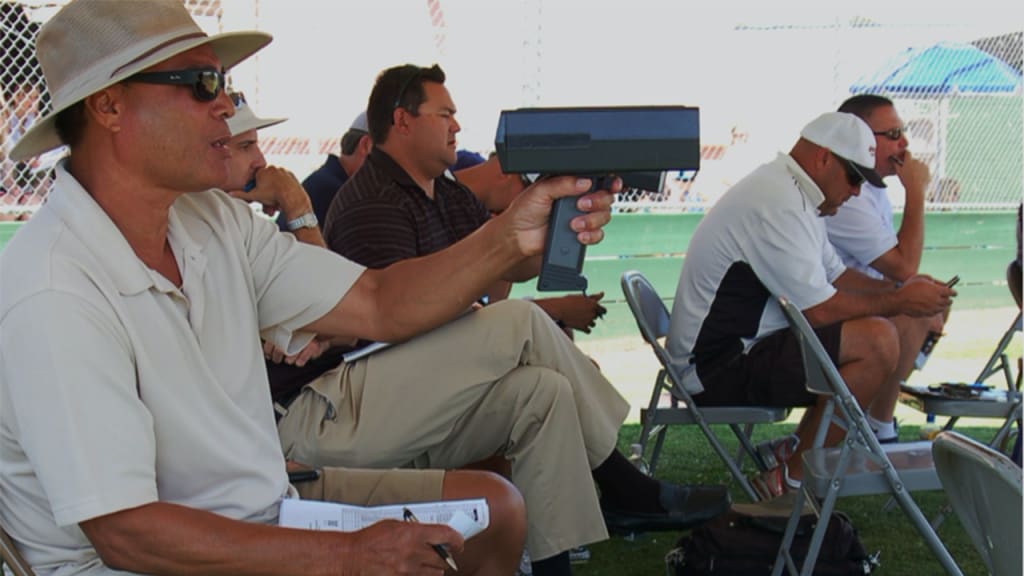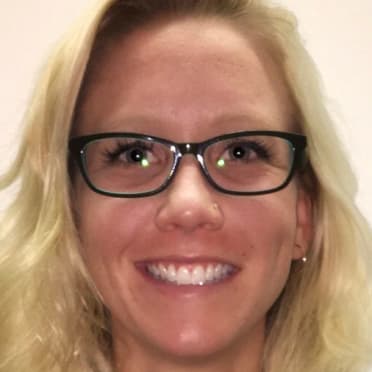
While we wait for the baseball season to get underway and for scouts to get back out on the road for their respective organizations, MLB Pipeline will shine a spotlight on these hard-working evaluators who are typically behind the scenes. We’ll talk to scouts across the game about their best Draft picks, biggest misses, best stories, go-to road food and more.
When Don Lyle made his first foray into professional baseball with the Reds in 1974, he and his Minor League teammates would often find themselves on the back fields shagging extra batting practice for Johnny Bench, Joe Morgan, Ken Griffey, Tony Perez, George Foster and Pete Rose.
Now in his 28th year of scouting, Lyle continues to draw on those experiences of seeing some of the best at work to help him seek out and sign the top talent in his area for the Cleveland Indians.
“It was the best thing,” Lyle said. “I always stress how important that is to have interaction with the big league guys. It excites you, gives you that feeling that it could be you one day.”
Almost three decades into his chosen profession, the California native was at first hesitant to get into scouting, spending 11 years between his time on the field and his days in the stands working for a truck company. It wasn’t until Lyle’s former teammate and roommate Reggie Waller -- at the time, the soon-to-be scouting director for the Padres -- came calling that he returned to the game.
“He brought me in, but the best part was he brought me around a bunch of old scouts and made me ride with them the first year,” Lyle said. “Along with his help, it really sped me up.”
The crash course in evaluation was a building block on top of the foundation Lyle gained from seven seasons of playing professionally. Signed by Bob Howsam Jr. as the only player to come away with an offer from an 86-man tryout camp, Lyle made an impression in spite of showcasing himself in sandals and shorts that day because he was away at college without the proper attire.
His passion for the game was another piece of groundwork that was laid long before he took his first scouting job. From the moment one of his coaches paid the $5 fee because he couldn’t afford to suit up for his Little League team in Sacramento, to multiple high school seasons in which he lost batting titles in the final days, he needed a hiatus between playing and returning because of his love for the game.
“The day I walked off the field when I retired, I cried all the way back to the hotel,” he said. “I didn’t cry so much over baseball, I was crying because it was that life I was living, seeing my friends and embracing the challenges and playing.”
Best story
One of the first scouts who was on Yankees slugger Aaron Judge as a junior in high school, Lyle originally worked him out on the mound and in the cage at Lodi Park at Zupo Field. The bond between Lyle and the Judge family began there and continued as the scout began to make calls to try to help the future phenom secure a spot at Fresno State, which he earned after impressing head coach Mike Batesole.
In Judge’s junior season the Bulldogs went 23-33 and did not win the conference championship for just the second time in eight years -- on the other occasion, they were finalists -- though he started all 56 games and led the squad with 12 homers, 15 doubles and 36 RBIs in a down year.
Ahead of one of those matchups, Lyle noticed a couple of executives in attendance, and hoped to help orchestrate a display of what he knew the young player was capable of. But even he wasn’t prepared for what followed.
“I said, ‘Look, Aaron, today you’ve got two guys in this ballpark who could change your life,’” Lyle recalled. “'Forget all the things I’ve told you about staying up the middle -- hit this ball out of the park as far as you can every time.’ But I had no clue. He had a wood bat and he was hitting these balls over the lights.
“Kevin Towers and Jim Hendry stop talking and start watching. I’ve seen George Foster take batting practice and all these other people in the 70s who were great, and I’ve never seen somebody hit a ball so far and so high. ... Judge was like if you were the only person who thought you had seen a Martian and you tried to explain it to somebody -- they’re not going to believe you.”
Best Draft pick
“Derrek Lee,” Lyle said. “He almost won a Triple Crown one year. We got him with San Diego when Reggie was my scouting director, we took him in the first round. Eventually we had to trade him for Kevin Brown, bringing him to the Padres and taking us to the World Series that year against the Yankees in ’98.
“Derrek had all the talent in the world. ... Most scouts feel better when they get lower-level guys than top-level guys to the Majors, but Derrek would have been my favorite, and most productive.”
Biggest standout
“I could go from CC Sabathia to Jimmy Rollins to Derrek Lee, but my first Draft pick ever was Geoff Jenkins. He was a 24th-round pick for us and they were telling me he wasn’t going to play in the big leagues. We offered just a little bit of money and he didn’t want that so I said, ‘Geoff, go to USC and hit home runs and you’ll get that $100,000 you wanted.'
“Three years later, he gets $911,000 as a first-round pick of the Brewers, ninth overall. My roommate at scout school -- Bruce Seid, he’s passed on now -- took him, partly because I told him everything I could about him. I used to tell him, ‘Geoff’s going to play in the big leagues, I don’t care what anybody says,’ and that was his first-round guy that year.”
Biggest miss
“A guy like [Dustin] Pedroia is a perfect example,” Lyle said. “He was so small and his tools weren’t strong out of high school. He got better because he has grit and guts to him. But no one was going to believe you if you tried to sell that guy out of high school. … There were many people who saw him later who still didn’t believe he was going to be anywhere close to what he turned out to be, because of that grit. That’s why we have to dive into makeup so much more than just the tools package.”
Advice to industry hopefuls
“I always tell young scouts, no matter if a guy is older than you, if he sees something that you don’t see, it doesn’t necessarily mean he’s right. But even though a boss is not always right, he’s still the boss. … Scouting is like learning from your teachers. Each teacher taught you something new and hopefully by the time you get to the next level, you have all this extra information to share with others.”
